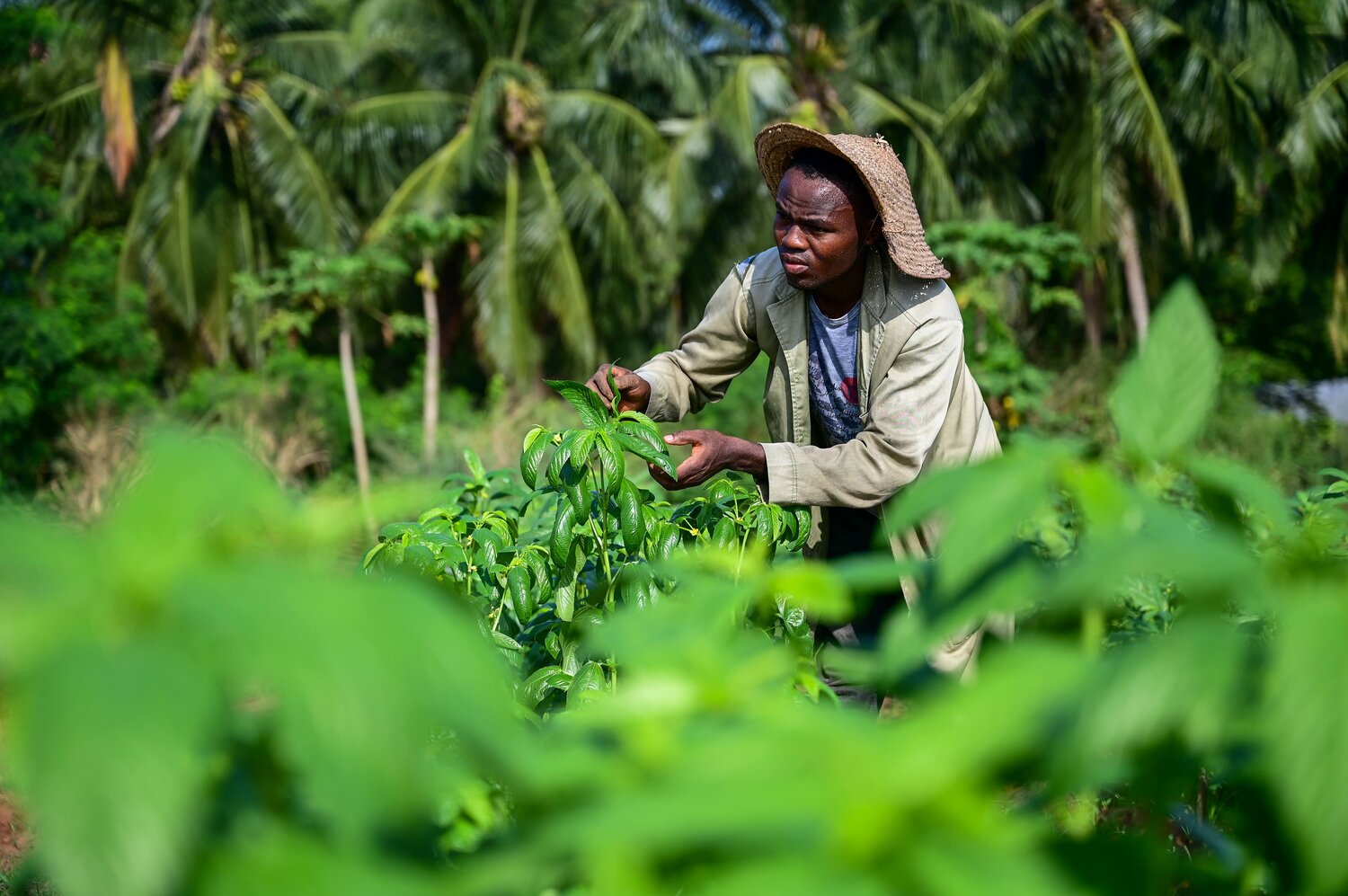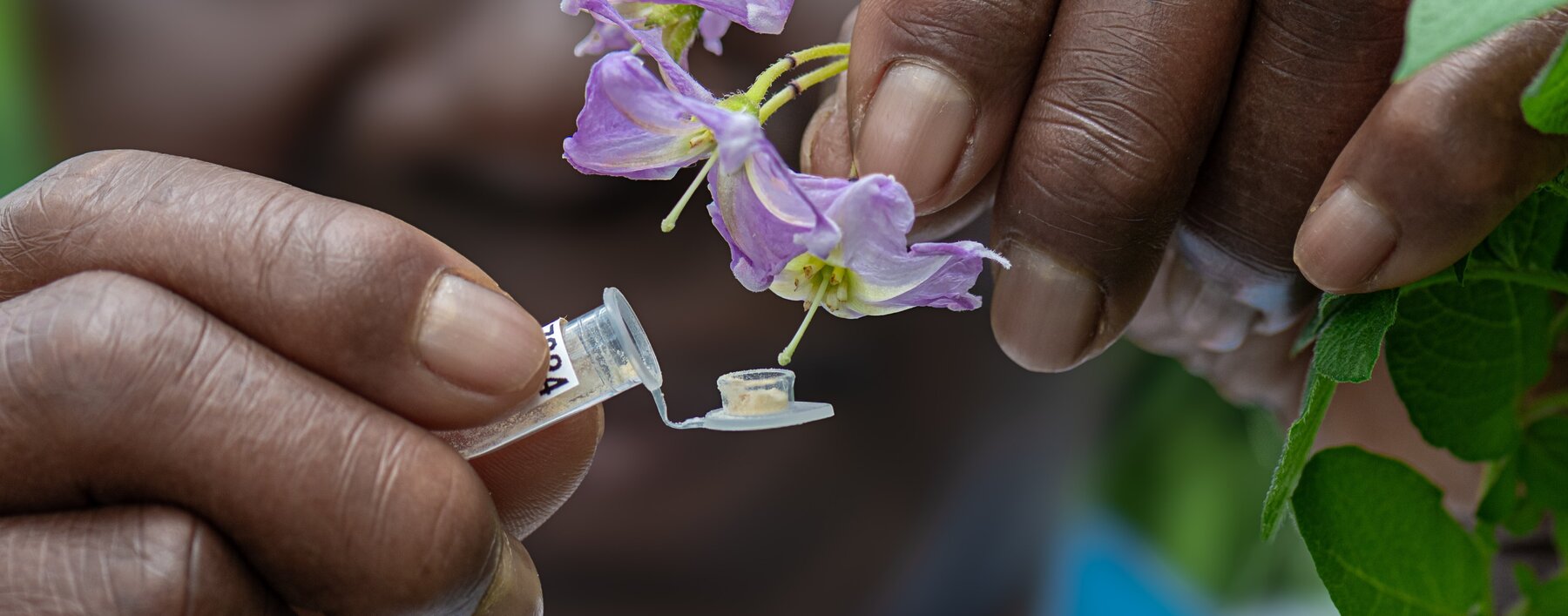Protecting the Building Blocks of Our Food System
What is the International Treaty on Plant Genetic Resources for Food and Agriculture? It may not roll off the tongue, but the idea behind it is quite simple – and important. It’s about ensuring that the diversity of the crops we all depend on – be they rice, wheat, lentils, beans, banana, potato, cassava or yams – remains available to use and share, across borders and generations.
A key component of the International Plant Treaty – the Multilateral System of Access and Benefit-Sharing (MLS) – has enabled over 7 million transfers of seeds and other plant materials since 2007.
It’s like bringing one slice of pie to a party and gaining access to the whole dessert table in return.
To keep this system going, two things are essential: predictable support for genebanks that conserve diversity and make it easily available, and fair and equitable benefit-sharing with the farming communities who steward crop diversity in the field, allowing the continued evolution of new, adaptive traits. That’s where two complementary funds come in.
The Benefit-sharing Fund: Investing in Farmers and Innovation
The Benefit-sharing Fund (BSF), established by the International Plant Treaty in 2009, is the operational mechanism for receiving and using the financial resources generated from the MLS. It supports high-impact projects in developing countries that help ensure the flow of seeds and plant material from farmers to genebanks and back. This enables the conservation and use of crop diversity to address challenges of climate change, food insecurity and nutritional needs.
Funds under the Benefit-sharing Fund are used strategically to play a catalytic role in international cooperation in the conservation and use of plant genetic resources for food and agriculture.
Funding is generated both through voluntary contributions from a range of donors and through payments generated by the MLS. MLS income is generated from profits arising from the marketing of crop varieties that have been developed using material from the MLS. An agreed portion of the profits is deposited into the BSF, generating a source of sustainable and predictable income for the Fund. This in turn enables small-scale farmers, scientists and breeders in developing countries to tap into the International Plant Treaty’s global gene pool to undertake research for the further development of new crop varieties.
So far, over USD 35 million has been disbursed from the BSF to over 100 projects in over 75 countries worldwide through competitive grants. Projects have helped farmers grow more resilient crops, supported national seed systems, and improved the capacity of communities and researchers to work with diverse crop varieties.
For several years now, the International Plant Treaty’s Governing Body has been negotiating enhancements to the benefit-sharing system to encourage more material to be shared and increase financial contributions – so that the system remains fair, transparent and effective.

Jute mallow trials at the World Vegetable Center experimental station in Cotonou, Benin. Photo: Neil Palmer/Crop Trust
The Crop Diversity Endowment Fund: Securing Seeds Forever
The Endowment Fund, managed by the Crop Trust, was established in 2004 to guarantee the long-term conservation of crop diversity in genebanks. It ensures that the world’s most important seed collections – including those of CGIAR genebanks and the Svalbard Global Seed Vault – have predictable funding year after year.
In contrast to fluctuating and unpredictable funding cycles, the Endowment Fund guarantees an annual investment in genebanks.
Each year, an amount (up to 4% of the Endowment Fund’s average market value over the previous twelve quarters) is withdrawn and used to ensure that crop diversity held in key genebanks is effectively conserved and made available for use. At the end of 2024, the market value of the Endowment Fund was approximately USD 357 million.
The Endowment Fund was built entirely on voluntary public and private contributions and remains open to donors who want to make a long-term impact. Donors can direct their support to specific crops, countries, or institutions to achieve their desired impact – making it a flexible and strategic tool for those invested in the future of food.
Why This Matters – and Why Now
The Multilateral System created by the International Plant Treaty is facilitating global access to seeds. Its continued success depends on keeping the system alive and well-resourced – both in farmers’ fields and in genebanks.
That’s why these two funds matter:
- The International Plant Treaty’s Benefit-sharing Fund channels support to farmers, researchers, and conservation efforts on the ground in developing countries. It supports on-farm management and improvement of crop diversity and creates linkages with broader conservation efforts of genebanks.
- The Crop Trust’s Endowment Fund provides financial stability to genebanks that hold the world’s key crop collections on behalf of humanity.
Each fund supports a different part of the same ecosystem. One fuels action today. The other secures the resources that will make action possible tomorrow.
Together, they ensure that seeds remain available, accessible, and protected – for science, farming, and all who depend on food.

